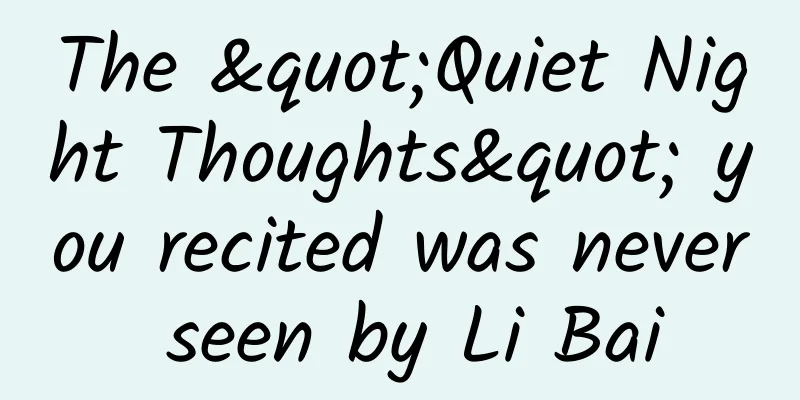Android fragmentation report released

|
According to foreign media reports, Android fragmentation has plagued the mobile operating system for years, although Google has recently taken active corrective measures. What impact does this problem cause? Devices of different sizes, running a wide range of Android versions and models are numerous, making it extremely difficult for developers to adapt to the increasingly dominant mobile platform on a large scale. OpenSignal recently released the 2014 Android fragmentation report, using specific data to illustrate the severity of the problem. Let me first briefly introduce OpenSignal, the company that developed the eponymous app that generates mobile network coverage maps based on crowdsourced information from smartphone users. It has been available on the Android platform for some time, and last year it launched an app version for iPhone users. OpenSignal has become one of the largest independent sources of global mobile operator speed and coverage data. Rather than relying on coverage maps provided by the mobile operators themselves, it collects this information directly from users and makes it public, so that everyone can see which operator has the best coverage and where. In the process, OpenSignal has gained a byproduct: a lot of non-network-related data it collects provides deep insights into the current state of the mobile field, including 4G network coverage and usage data for different device models. In other words, information on fragmentation. According to OpenSignal, it found 18,796 "different Android devices" this year, up 58% from 11,868 last year. To come up with this number, it looked at 682,000 Android devices with its app installed, so the data should be representative of the current state of the Android ecosystem. There is no doubt that this number is growing naturally - after all, there have been a lot of new Android devices entering the market in the past 12 months, and the existing devices are not going away all of a sudden. From a brand perspective, it's no surprise that Samsung dominates the Android device market with a 43% share (down from 47.5% last year). Sony ranks second with only 4%, which fully illustrates the huge gap between Samsung and the rest of the Android camp. LG, Motorola and Huawei are also at the top. According to OpenSignal, 12 of the 13 most used Android devices are from Samsung. The variety of devices is only one aspect of the Android fragmentation problem. OpenSignal collected data from Google and Apple and compared the penetration of each version of the two mobile systems. For example, 20.9% of Android users use KitKat (Android 4.4), most Android users use Ice Cream Sandwich (Android 4.0) or above, and the proportion of Android users who still use Gingerbread or Froyo is slightly more than 14%. In comparison, according to Apple's official data, the penetration rate of iOS 7 is as high as 91%, iOS 6 accounts for 8%, and older iOS system versions account for less than 1% in total. It’s important to note that while OpenSignal’s data is fairly extensive, it’s still limited to devices that have the OpenSignal app installed — a significant number, but not representative of all Android smartphones in use, and therefore may not truly reflect the overall picture. Regardless, the OpenSignal report is worth a read, as it also collects some data from third-party sources, including the correlation between fragmentation and GDP per capita. As a winner of Toutiao's Qingyun Plan and Baijiahao's Bai+ Plan, the 2019 Baidu Digital Author of the Year, the Baijiahao's Most Popular Author in the Technology Field, the 2019 Sogou Technology and Culture Author, and the 2021 Baijiahao Quarterly Influential Creator, he has won many awards, including the 2013 Sohu Best Industry Media Person, the 2015 China New Media Entrepreneurship Competition Beijing Third Place, the 2015 Guangmang Experience Award, the 2015 China New Media Entrepreneurship Competition Finals Third Place, and the 2018 Baidu Dynamic Annual Powerful Celebrity. |
<<: Samsung Galaxy S5 completes ice bucket challenge, names iPhone 5S and other phones
>>: Things change in China: The Ice Bucket Challenge is drifting away from charity
Recommend
What is NetQin's intention in issuing another open letter to investors?
On the afternoon of August 8, NetQin once again i...
Car companies start "battery equipment competition", CATL's long-life batteries become "hot cakes"
In the new energy vehicle circle, the topics of &...
What is the best way to attract traffic to mini programs? How to promote and attract traffic to WeChat mini programs?
Q: What is the best way to attract traffic to min...
Childhood memories are not gone, we just can’t read them|Tech Weekly
Compiled by Zhou Shuyi and Pingsheng Why do anima...
Tengchong volcano actually looks like Yunnan's "mushrooms"? And they are in pairs!
Tengchong City in Yunnan Province of my country w...
2021 Mobei Google SEO Optimization Seventh VIP
2021 Mobei Google Optimization Seventh VIP...
Fury and impotence, the United States may ban Chinese software from its cars, and Chinese manufacturers are confused: That’s it?
From the other side of the ocean, known for its c...
Product Operation: 5 Rules for Good Products
Three elements of exponential growth: good produc...
Which phone is the most resistant to hacker attacks? iPhone 5S is beaten
Which smartphone is the most resistant to hacking...
Can’t come up with notes for popular articles on Xiaohongshu? 5000-word review guide
If a blogger, Xiaohongshu operator, or marketer f...
Alibaba's leadership change reveals Jack Ma's sense of crisis
Alibaba's 2015Q1 financial report released la...
Home appliances require direct current, but why do we use alternating current at home?
We know that electricity can be divided into alte...
Exclusive interview with OneAPM COO Cheng Xianfeng: Why do we need APM?
Nowadays, the word "smart" is mentioned...
New features of iOS 9 to be announced at WWDC 2015
After two years of excitement, it's time to f...
How did touch-screen phones replace keyboard phones and become popular around the world?
[[142542]] If we want to explore the meaning of J...









